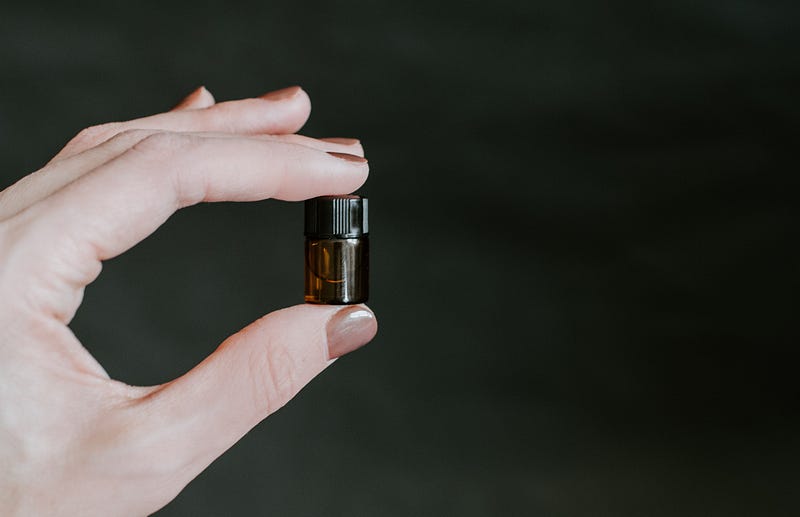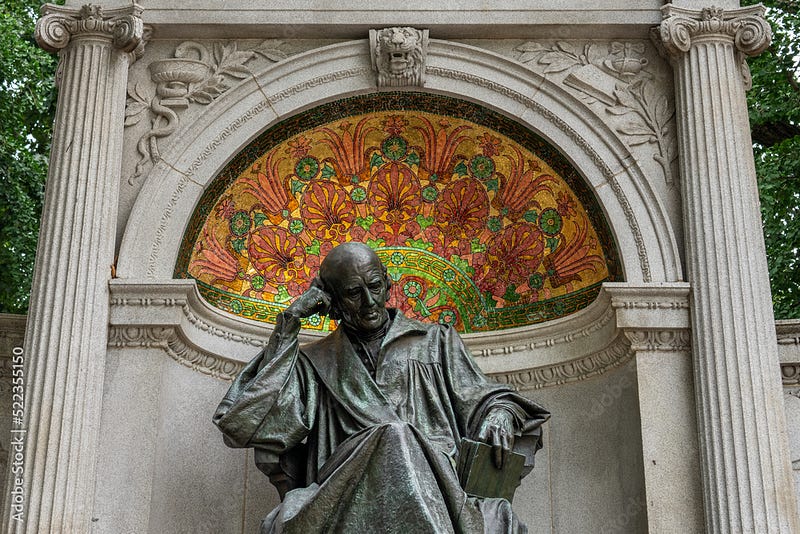Exploring the Intersection of Homeopathy and the Placebo Effect
Written on

Wellness Narratives
As a holistic nutrition specialist, I am dedicated to incorporating alternative medicine into a broader framework of health and wellness. While I acknowledge the essential contributions of conventional medicine and utilize it when necessary, I wholeheartedly embrace holistic healing principles. I believe that both approaches serve distinct purposes at different times.
My journey into holistic nutrition was driven by a strong conviction in the healing potential of food. It is not just about eating any food; I stress the importance of choosing high-quality, organically sourced produce. The negative impact of processed foods and chemical additives may not be immediately apparent, but their long-term consequences can be detrimental to our health.
Reflecting on the wisdom of the ancient Greek physician Hippocrates, often called The Father of Medicine, I resonate deeply with his assertion: “Let food be thy medicine and medicine be thy food — All diseases begin in the gut.” This philosophy shapes my holistic perspective on health.
I typically favor gentle methods when addressing health issues, avoiding invasive procedures and minimizing reliance on pharmaceuticals. For instance, if I experience a mild headache, I do not rush to grab Advil. Instead, I allow my body to find its own way to manage the discomfort, exploring natural remedies first. Should these methods fail, I still have the option of medication.
There are many natural approaches to alleviate such discomfort, one of which is Homeopathy. Homeopathy often faces skepticism, particularly in the United States, where it is more criticized than in Europe and frequently dismissed by the scientific community as quackery.
Let’s explore the historical context of homeopathy. Founded by German physician Samuel Hahnemann at the end of the 18th century, homeopathy was once a more respected form of medicine. The Doctor Samuel Hahnemann Memorial in Washington, D.C., stands as a testament to its past significance.


Historically, homeopathy had numerous institutions and hospitals across the USA. Introduced by Hans Burch Gram in 1825, it thrived due to the influx of German homeopaths, with the first homeopathic medical college established in Allentown, PA, in 1835. Understanding this history enriches our view of homeopathy and its healthcare role.
Based on the principle of like cures like, homeopathy employs substances from plants, animals, and minerals to provoke healing responses in diseases by using agents that replicate disease symptoms in healthy individuals. These substances undergo potentization, a process of repeated dilution and vigorous shaking.
In some cases, dilution continues until little to none of the original substance remains, which is where skepticism arises from both the scientific community and the general public — and I can certainly understand this.
Proponents of homeopathy argue that the more a substance is diluted, the more potent it becomes for treatment. As a holistic practitioner, I am quite skeptical. I often require personal experience or credible reports from trusted sources before trying a remedy. However, if multiple well-documented cases indicate a remedy's effectiveness, I'm open to considering it.
I value objective evidence. While it is fascinating to have explanations for everything, I believe it is unwise to dismiss a remedy simply because it does not fit current scientific understanding, especially when numerous clinical examples affirm its effectiveness.
Homeopathy may seem scientifically implausible, but this could be a reflection of our current scientific limitations. It might be beyond our existing methodologies to fully grasp or prove its efficacy at this stage.
I hold hope that advancements in Quantum Physics and Quantum Mechanics will eventually shed light on what current science cannot. I suspect that the effectiveness of homeopathy will one day be understood through these evolving fields.
History illustrates that new ideas, like Geocentrism, the Big Bang Theory, and Germ Theory, initially faced skepticism but were eventually validated, leading to significant scientific advancements. Conversely, previously accepted beliefs, such as bloodletting as a medical practice or the safety of DDT, were later recognized as flawed.
These examples underscore science's evolving nature, where accepted truths may shift as knowledge expands and methodologies improve, highlighting the need for continual reassessment and openness to new discoveries.
I eagerly await the day when either science or metaphysics can provide comprehensive explanations. Even if homeopathy's efficacy is sometimes attributed to the placebo effect (which remains unproven), I am entirely open to that possibility.
Let me clarify: the placebo effect is an intriguing phenomenon with significant healing potential. However, there is no simple switch in our bodies that can be activated at will. If homeopathy or other natural therapies like self-hypnosis, meditation, or aromatherapy can serve as a ‘switch’, I am keen to explore their possibilities!
The mind can be a powerful tool for healing. Scientific research has demonstrated that, under appropriate conditions, a placebo can be as effective as conventional treatments. Placebos are frequently used in clinical trials to evaluate treatment efficacy and are standard in drug studies. Randomized double-blind placebo-controlled (RDBPC) studies are regarded as the "gold standard" in epidemiological research.
There are documented cases of individuals experiencing self-healing through the placebo effect. Returning to homeopathy, I feel there is much more to uncover about its workings and effectiveness, particularly in treating mild acute symptoms in children and animals — two groups that are less likely to experience the placebo effect and possess fewer mental barriers.
I may not witness a comprehensive explanation in my lifetime, but I hope to remain long enough to see that moment.
I recognize that my views may be controversial and not universally accepted, but I wanted to express my thoughts. I personally use homeopathy in a limited capacity for minor ailments that do not require serious medical intervention. I would not consider it for treating infections or severe health issues.
Despite the debate surrounding it, I believe that Hahnemann and homeopathy deserve a fair evaluation.
Wishing everyone good health and kindness towards their bodies.
Medical Disclaimer: I am not a licensed medical professional. The information in this article is for informational purposes only and should not be considered a substitute for professional medical advice or consultation with healthcare providers.
Products marketed as homeopathic in the U.S. have not been evaluated by the FDA for safety and efficacy in diagnosing, treating, curing, preventing, or mitigating any diseases or conditions.
Iosè Cocuzza is a writer, Board Certified in Holistic Nutrition®, Certified Gluten-free Practitioner, Homeopath, and Bach flower registered practitioner, balancing all these roles as a mother.
You can find her on Instagram and at iosecocuzza.com.
Receive notifications for new articles by clicking here.